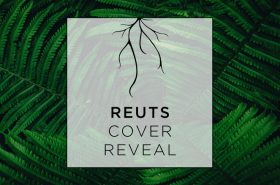
Originally posted on Editorial Director Kisa Whipkey’s personal blog, we felt the post outlining what not to do when querying fit nicely with our REUTS Full-Transparency Series and, with permission, would like to share it with you all again! Below you’ll find a lot of behind-the-curtain insight for all your querying needs. Please note, since Kisa is part of our acquisitions team, a lot of the information she’s featured is directly applicable to querying REUTS—valuable insight that should help anyone embarking on their query journey.
As Editorial Director for REUTS Publications, I’ve been privy to first-hand knowledge of publishing’s “mysterious” acquisitions process. And over the past two years, I’ve witnessed innumerable querying blunders that hurt the author’s chances, rather than helping them. I’m not the first to offer up this kind of advice-oriented post, but armed with personal insight and pet-peeves, I thought I’d add my own thoughts into the mix.
So, with only a modicum of tongue-in-cheek snark (okay, make that a lot of snark), I give you:
What Not to Do When Querying
(aka How to Piss Off an Acquisitions Editor)
by Kisa Whipkey
There are plenty of posts out there that explain what you’re supposed to do when querying, the steps that are supposed to lead to that coveted moment where someone offers you representation. There are also posts that tell you what to avoid. But I don’t know that I’ve seen anyone really say the following, in all its blunt glory. Because the truth of the matter is this: there are definitely things you can do as a writer to increase your chances of a book deal, but there are also plenty of ways to blow it. (Also, it should be noted that this information applies to agents as well, not just acquisitions editors.)
So let’s break down some of the worst publishing faux pas you can make, yes?
DO:
Submit to publishing houses and agencies that interest you.
DON’T:
Submit to them blindly, and then ask a bunch of questions about how they operate. That’s something that needs to come first and is a dangerous game to play. Vet the places you’re planning to query before you hand them your work. Not after. That wastes everyone’s time, and there’s nothing agents and editors hate more than wasting time. We have precious little of it as it is. Be courteous and ask your questions up front, please. Most of us are more than willing to answer.
DO:
Query agents and small presses.
DON’T:
Query them both simultaneously, and definitely, definitely don’t use a small press as leverage for attaining an agent’s interest.
This one’s two-fold, so let’s start with the first half: don’t query agents and editors simultaneously. Small presses are fantastic. So are agents. But they lead to two completely different publication paths. And there’s nothing we despise more than falling in love with something, only to discover that the author wasn’t serious about working with us after all. It breaks our literary-loving hearts. So please, know where each publication path leads and which one is right for both you and your project.
Which brings us to the second half. This is a serious faux pas, and one I hope none of you ever commit. Never ever use a small press for the sole intent of gaining interest from an agent. Leveraging an offer of publication from a small press to get an agent’s representation (or even a bigger publisher) is like dangling a wedding proposal from someone you pretended to like in front of the mate you really want. It’s mean, and cruel, and makes you a horrible person. It’s also a sure-fire way to end up on a publishing house’s Black List. Yes, we have those. And publishing is a small world; we talk. So be careful which bridges you burn. Treat all parties involved with respect and professionalism. If you want an agent, don’t query small press editors. If you receive an offer from somewhere else, tell us. There’s a perceived divide in publishing, the us vs them mentality, but we’re all just people. And we all just want a little consideration. Is that too much to ask?
DO:
Research the various agents and editors you’re querying. Find out what they like, personalize your query, follow their submission guidelines, and all that other stuff you’ve seen touted a million times. It’s good advice. We appreciate that.
DON’T:
Spam your submission to everyone at the agency/publishing house. And definitely don’t resubmit the same query, after receiving a rejection, to someone else within the company. Publishing houses are like families. We all know everyone else, and we know what they like. So if we see a submission cross our desk that isn’t a fit for us, but would be for one of our colleagues, we’ll tell you. Better yet, we’ll tell them. (Or, alternatively, acquisitions can be a team effort, as it is at REUTS, and everyone who has a say has already read your work prior to the decision being issued.) Talking about books is one of the reasons we got into publishing, so you can bet our water cooler conversations revolve around that too. If you receive a rejection, accept it gracefully and move on.
DO:
Keep track of your submissions and the response times associated with each.
DON’T:
Incessantly hound an agent or editor for a decision. Wait until the listed response time has passed and then politely — key word there: politely — nudge for a response. Submission in-boxes are the first to brim over with a plethora of time-consuming tasks. And as I said above, editors and agents are incredibly busy people. Reading actually falls low on our priority scale, as our days are usually spent dealing with the various tasks associated with producing the projects we’ve already signed. So reading the new queries that rain down like, well, rain, is a luxury we don’t have on a daily basis.
We know you’re excited for your work, and that you can’t wait for that glorious day when someone from our side of the fence is equally excited for it, but constantly yapping at our heels like a chihuahua does nothing but annoy us. We don’t appreciate being backed into corners, and if you push too hard, guess what the answer is: NO. That’s not the relationship you want to have with your potential publishing allies, is it? You want someone to appreciate those words you slaved over, to savor the story you carefully crafted, and to join you in screaming its brilliance from the rooftops. Rushing a decision allows for none of those things. The most you’ll get is a half-assed read-through and a reluctant yes. Patience really is a virtue here, people. As much as it sucks, it will benefit you in the long run.
DO:
Follow agents, editors, and publishing houses on social media and interact with them. Forming networking connections is a fabulous way to form relationships that further your career. But be careful. There’s a fine line between creating useful contacts and this . . .
DON’T:
Abuse the accessibility social media gives you. We’re there because we genuinely want to meet the authors behind our next favorite read. We want to support the writing community and foster a kinship that bridges the gap between publisher and author. And we want friends who like what we like. We’re human. It happens.
We’re not there so you can harass our every waking moment with status requests, update requirements, or attempts to pressure us into taking your work by leveraging the opinions of others who have read it. That’s not the best impression to make, so just don’t do it, okay? There are a lot of factors that go into an acquisitions decision, but endorsements from random Twitter buddies isn’t one of them. Now, maybe if your random Twitter buddy is Stephen King or JK Rowling, that might be different. But still, save that for the query letter, or better yet, get them to blurb your book after it’s signed.
DO:
Create an online persona, platform, and all that good stuff.
DON’T:
Parade things you don’t want the world to see. One of the biggest factors in an acquisitions decision is actually whether or not the team involved would want to work with the author. So, in that sense, submitting a query is on par with a job interview. And guess what? We do our research. We may love your talent, falling all over your manuscript with gushing adoration, but if we discover that you’re the world’s biggest Prima Donna on social media, guess what? Your appeal just went down. Don’t get me wrong, opinions are great. Everyone has them, along with a certain piece of anatomy that usually accompanies that phrase. But think about how your opinions may be perceived by someone on the outside.
Shaming other authors, railing against other publishers, responding horribly to a rejection, and whining like an attention-starved kitten are not appealing things in a potential partner. Would you date someone who checked those boxes? Probably not. So can you blame us if we don’t want to work with that person either? Publishing is a long-term relationship, taking months or years to come to fruition, and you can be darn sure we’re not going to want to work with someone who will make that time an ulcer-inducing, grey-hair creating pain-fest. You could have the most brilliant masterpiece, but if you yourself are a piece of work online, I’m pretty sure you can guess what the verdict will be. So the moral here is this: think about your online persona. Craft one that will be appealing to both your audience and your potential publisher. And generally try to avoid things that would fall under the heading “authors behaving badly.”
The take-away from this candid look at the publishing process is simple, really. It all comes down to common courtesy. Editors and agents are people. As in human. As in we have lives and obligations and families too. And just like you want us to shower you with glowing praise and go to the ends of the earth to champion your project, we want you to understand that your manuscript is not God’s gift to publishing. We may think it’s brilliant, it may be among our favorite reads of all time, but it’s definitely not the only one we’re working on. Show respect of that fact, handle your interactions with poise and professionalism, and you’ll manage to avoid every single one of the querying faux pas I just listed. Sound like a plan? 😉
Kisa is full of fantastic knowledge spanning from editorial to martial arts routines (and how to write fight scenes as realistic as possible). Her blog is chock-full of awesome, and you can follow her on Twitter (@KisaWhipkey) for instant gratification.


